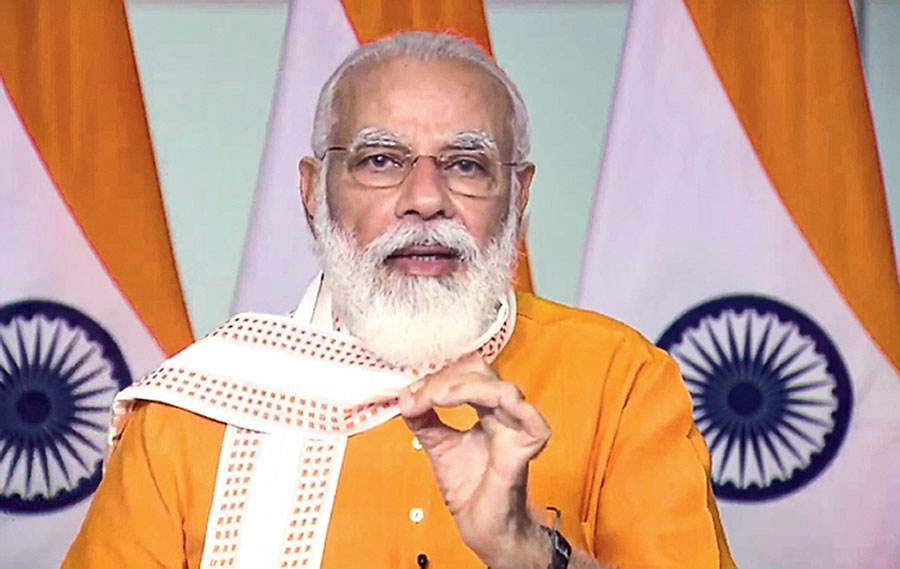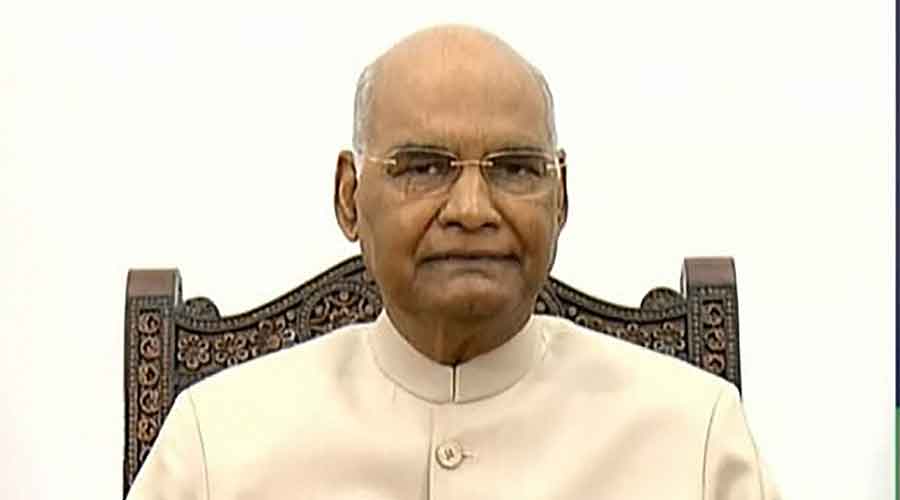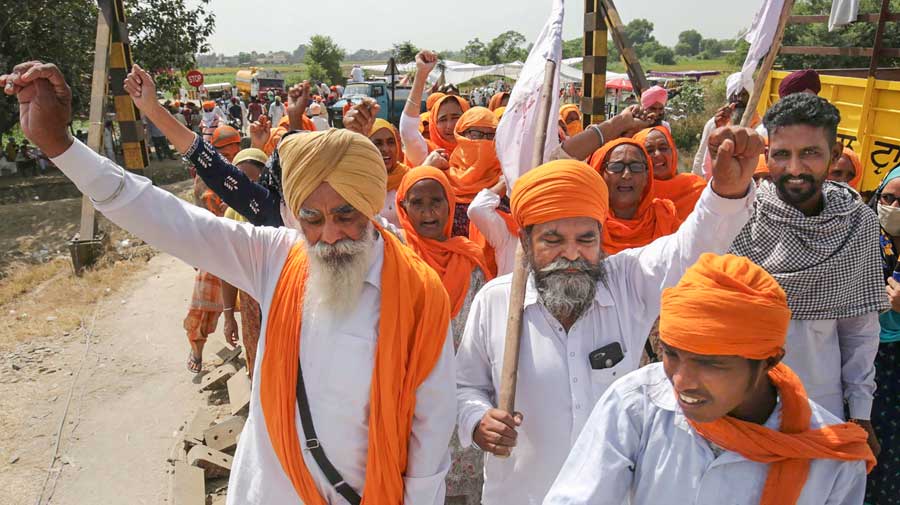Prime Minister Narendra Modi on Sunday stressed the importance of storytelling and narrated success stories of farmers as he tried to fire-fight the farmers’ agitation and its initial political fallout.
The stories he told during his monthly radio broadcast Mann Ki Baat were those of farmers led to prosperity by the freedom to sell their produce wherever and to whoever they wanted — a freedom he claimed his new farm laws guaranteed them.
The farmers agitating in several states say the new laws, once notified, would end the government’s MSP (minimum support price) regime and leave them to be exploited by big companies.
Modi’s efforts to counter the argument came a day after ally Shiromani Akali Dal decided to snap ties with the BJP, its hand forced by the farmers’ intensifying anger against the new laws.
The Prime Minister cited examples from states that had allowed vegetables and fruits to be sold outside the regulated wholesale markets, or mandis, saying these anecdotes were based on feedback received through letters and his interactions.
“One such farmer brother lives in Sonipat district of Haryana; his name is Kanwar Chauhan,” Modi said.
“He told us how there was a time when he used to face great difficulties in marketing his fruits and vegetables outside the mandi, the marketplace. If he sold his fruits and vegetables outside the mandi, his produce and carts would often get confiscated.”
Under the APMC Act, which the new farm laws will override, farmers could sell their produce only at the local mandis. However, over the years, many states had for practical purposes allowed farmers to sell their produce anywhere.
“In 2014, fruits and vegetables were excluded from the APMC Act (in Haryana), which greatly benefited him (Chauhan) and fellow farmers in the neighbourhood. Four years ago, he, along with fellow farmers from his village, formed a ‘farmer producer’s organisation’,” the Prime Minister said.
“Today, farmers in the village cultivate sweet corn and baby corn. Their produce is supplied directly to the Azadpur Mandi, Delhi, big retail chains and five-star hotels. Today, the farmers of the village are earning Rs 2.5 lakh to Rs 3 lakh per acre annually.”
Modi added that more than 60 other farmers from the same village were growing “tomato, cucumber and capsicum” and “earning from 10 to 12 lakh per acre every year”.
He narrated similar stories about the “Sri Swami Samarth Farm Producer Company” from Maharashtra, the “Tamil Nadu Banani farmer produce company”, “Iraada” (a farmer-producer company from Lucknow) and Ismail Bhai, a farmer from the Prime Minister’s home state of Gujarat.
Ismail Bhai, Modi said, had resolved to dispel the notion that farming was unprofitable.
“He started farming by using new methods and innovative techniques. Using drip irrigation he cultivated potatoes... and today his potatoes are his hallmark,” the Prime Minister said, according to an English translation of his speech by his office.
He said Ismail Bhai was earning “handsome profits” by selling high-quality potatoes directly to “big companies”.
Modi went on to hail the benefits of storytelling, regretting the decline of an art that was part of India’s rich heritage. In this context, he recalled an incident from his past life as a “parivrajak” (wandering ascetic).
“I spent a major part of my life as a parivrajak, an ascetic. Wayfaring was my life. Every day it used to be a new place and people, new families,” he said.
While meeting families he would speak to the children and ask them to tell stories. “No, uncle, not a story, we’ll tell you a joke,” the children would often say to him, he recalled. “They would ask me too to tell them a joke; evidently they had no clue (about) stories. It was jokes that had pervaded their lives, in a major way,” he said.
Modi introduced a group of professionals from Bangalore who pursue storytelling in their spare time and lauded their efforts. He urged families to take some time out every week for storytelling, particularly in these pandemic-hit times.
“You will see what a huge treasure gets accrued (for) the family, how great (the) research (will be) and how much delight it will bring to everyone!” he said.













